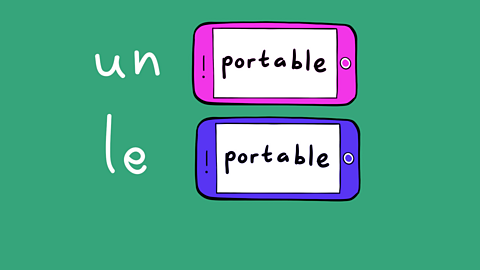How to use the verb 'to have' in French
It's always useful to be able to talk about what you have or don't have.ÔÇÄ
Avoir - to have is the second most frequent verb in French.ÔÇÄ
Like lots of really useful verbs ÔÇÄ ▓╣▒╣┤Ã¥▒░¨ÔÇÄ is irregular and it goes like this!ÔÇÄ
J'ai deux p├¿resÔÇÄ - I have two dads.ÔÇÄ
ÔÇÄTu as les cheveux longsÔÇÄ - You have long hair. ÔÇÄ
Il a un chienÔÇÄ - He has a dog.ÔÇÄ
Elle a un chatÔÇÄ - She has a cat.ÔÇÄ
Vous avez un v├®lo bleuÔÇÄ - You have a blue bicycle.ÔÇÄ
There are some phrases where in English we would say I am ÔÇÄbut in French you say I have.ÔÇÄ
ÔÇÄ J'ai dix-sept ansÔÇÄ - I'm 17 years old.ÔÇÄ
ÔÇÄ J'ai faimÔÇÄ - I'm hungry. ÔÇÄ
ÔÇÄ J'ai soifÔÇÄ - I'm thirsty.ÔÇÄ
ÔÇÄ J'ai raison!ÔÇÄ - I am right.ÔÇÄ
With ÔÇÄ avoir you can say what you and other people have.ÔÇÄ
┬ß&#│µ27;▓╣¥▒ÔÇÄ - I have
tu asÔÇÄ - you have
ÔÇÄil aÔÇÄ - he has ÔÇÄ
ÔÇÄelle aÔÇÄ - she has ÔÇÄ
ÔÇÄvous avezÔÇÄ - you have ÔÇÄ
Avoir (to have) ÔÇô a very useful verb
Avoir (to have) is a very useful verb and is used whenever we would say 'have' in English. It ÔÇÄis also used to form other tenses, such as the pass├® compos├® ).
- JÔÇÖai les cheveux noirs - I have black hair.ÔÇÄ
- Tu as un chat? - Do you have a cat?ÔÇÄ
- Elle a un fr├¿re - She has a brother.ÔÇÄ
- JÔÇÖai mang├® une pomme - I have eaten/I ate an apple.
How to form avoir in the present tense
Avoir is an irregular verb, which means that it doesnÔÇÖt follow the same pattern as regular ÔÇÄverbs in the present tense.ÔÇÄ
This is how to conjugate the I, you (singular, informal) and he/she forms of avoir in the ÔÇÄpresent tense:ÔÇÄ
| English | French | Example |
|---|---|---|
| I have | ┬ßÔÇÖa¥▒ | JÔÇÖai un chien ÔÇÄ- I have a dog.ÔÇÄ |
| you (singular, informal) ÔÇÄhave | tu as | Tu as des fr├¿res ou des s┼ôurs? ÔÇÄ- Do you have any brothers or sisters?ÔÇÄ |
| he / she has | il / elle a | Il a beaucoup dÔÇÖamis ÔÇÄ- He has lots of friends.ÔÇÄ |
How to use avoir in the past
To talk about things you and other people had in the past, you can use the imperfect ÔÇÄtense of avoir.ÔÇÄ
This is how to conjugate the I, you and he/she forms of avoir in the imperfect tense:ÔÇÄ
| English | French | Example |
|---|---|---|
| I hadÔÇÄ | ┬ßÔÇÖa▒╣▓╣¥▒▓§ | JÔÇÖavais un chien quand ÔÇÄjÔÇÖ├®tais jeune ÔÇÄ- I had a dog when I was ÔÇÄlittle.ÔÇÄ |
| you had | tu avais | Tu avais une voiture bleue? ÔÇÄ- Did you (use to) have a ÔÇÄblue car?ÔÇÄ |
| he / she had | il / elle avait | Ma grand-m├¿re avait les ÔÇÄcheveux noirs ÔÇÄ- My grandmother used to ÔÇÄhave black hair.ÔÇÄ |
How to use avoir in the future
To talk about things you are going to have in the future, you use the correct form of aller ÔÇÄÔÇÄ(to go) plus the infinitive avoir (to have). This tense is called the immediate future and is ÔÇÄtranslated as 'I am going to have', 'you are going to have', 'he/she is going to have'. ÔÇÄYou form it as follows: ÔÇÄ
| English | French | Example |
|---|---|---|
| I am going to have | je vais avoir | Je vais avoir un cheval ÔÇÄ- IÔÇÖm going to have a horse.ÔÇÄ |
| you are going to have | tu vas avoir | Tu vas avoir un petit fr├¿re ÔÇÄ- YouÔÇÖre going to have a ÔÇÄlittle brother. |
| he / she is going to have | il / elle va avoir | Elle va avoir une grande ÔÇÄf├¬te dÔÇÖanniversaire - SheÔÇÖs going to have a big ÔÇÄbirthday party. |
Some more useful expressions using avoir ÔÇÄ
Sometimes, avoir (to have) is used in French where 'to be' is used in English. Here are ÔÇÄsome useful expressions where this is the case:ÔÇÄ
| English | French | Example |
|---|---|---|
| to be  years old | avoir  ans | Jai onze ans - Im 11 years old. |
| there is/there are | il y a ÔǪÔÇÄ | Il y a deux supermarch├®s ÔÇÄdans ma ville - There are two ÔÇÄsupermarkets in my town.ÔÇÄ |
| there isnÔÇÖt/there arenÔÇÖt | il nÔÇÖy a pas deÔǪÔÇÄ | Il nÔÇÖy a pas de cin├®ma dans ÔÇÄma ville ÔÇÄ- There isnÔÇÖt a cinema in my ÔÇÄtown.ÔÇÄ ÔÇÄ |
| to be hungry / thirsty | avoir faim / soif | Ma m├¿re a faim - My mum is hungry.ÔÇÄ |
| to be hot / cold | avoir chaud / froid | JÔÇÖai froid - IÔÇÖm cold.ÔÇÄ |
| to be afraid | avoir peur | JÔÇÖai peur des araign├®es - IÔÇÖm scared of spiders.ÔÇÄ |
Quiz
Find out how much you know about the verb avoir in this short quiz.
Game - FestiLingo: French. game
Visit the festival and practise French language skills in this game

More on Grammar
Find out more by working through a topic
- count7 of 7

- count1 of 7
